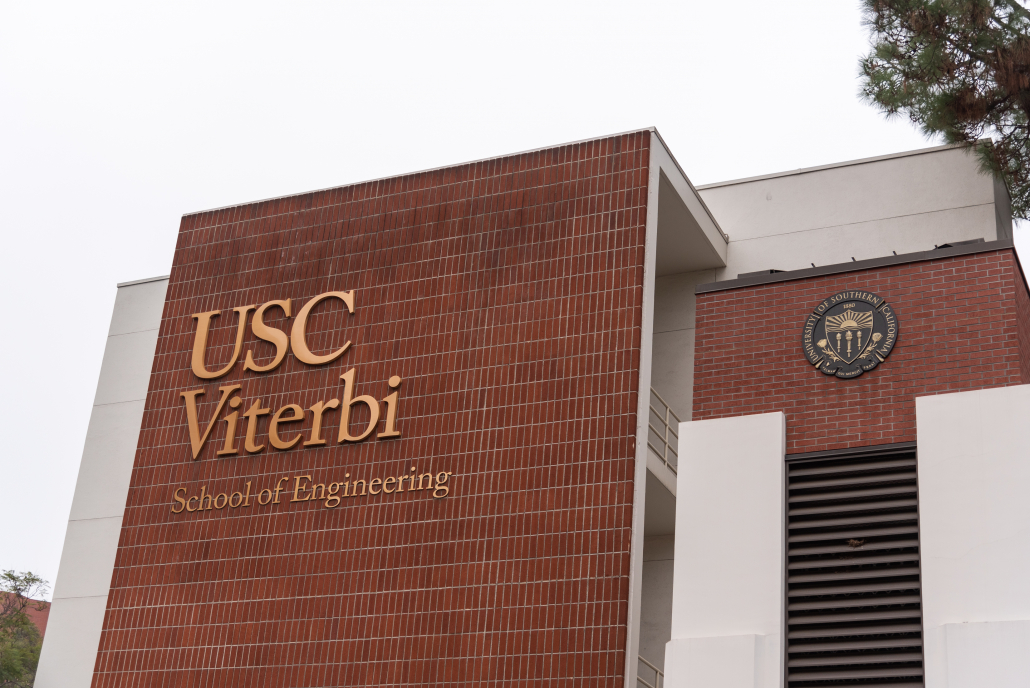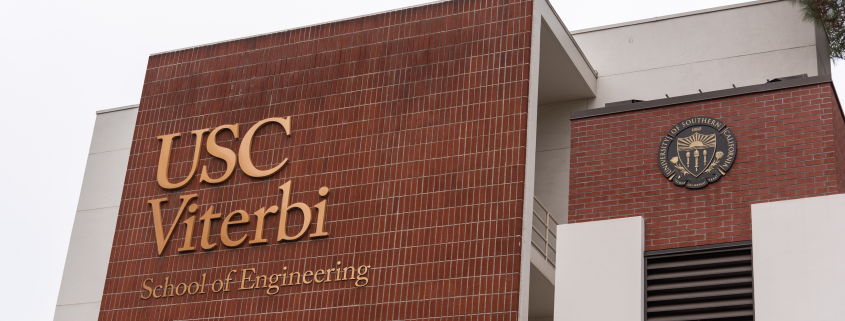USC Viterbi and Amazon create new USC-Amazon Center for Secure and Trusted Machine Learning

Housed in the Viterbi School of Engineering, Amazon’s data research efforts have moved to the University of Southern California to initiate the Center of Secure and Trusted Machine Learning. The partnership, announced in January, will look at customer data throughout the United States and develop research projects with the potential to bring about large-scale privacy preserving solutions.
“Today, machine learning is everywhere — speech recognition, self-driving cars, web searches and even human genes research,” Provost Charles Zukoski said in an email to the Daily Trojan. “However, this advancement in modern technology creates potential privacy issues and leads to ethical questions on how it can be applied. This one-of-a-kind research lab at USC will serve to make machine learning and A.I. technologies more secure and trusted by the public for future generations to come.”
The center isn’t the first instance of USC-Amazon relations — the Amazon Alexa Fund and Alexa Fellowship recently funded more than 21 startups in the USC Viterbi Startup Garage located at Silicon Beach. However, Viterbi Dean Yannis C. Yortsos says that this new partnership is primarily motivated by a different goal: A common pursuit of groundbreaking real-world privacy solutions.
“This center is going to do the fundamental work that allows you to develop applications that can come out of this … I’m expecting a considerable amount of intellectual property that will be generated, and then, [we will] have people that can take this intellectual property and make it useful,” Yortsos said.
The center focuses on enhancing the security measures for data that is collected directly from consumers, bridging the gap between an immense amount of data that major technology companies acquire and the best practices for applying it in the real world, Yortsos said.
The Amazon partner in the establishment of this new center, Prem Natarajan, is a USC alum. He previously served as the senior vice dean of engineering at Viterbi and the executive director of the Information Sciences Institute, a 300-person R&D organization in Marina Del Rey. Natarajan is now the vice president of Alexa AI, overseeing the Natural Understanding organization of Alexa AI.
Through the center, both faculty and doctoral student researchers will be able to partake in this research, with the shared priority being new privacy-preserving ML solutions for both USC and Amazon.
Students can become involved through research projects funded by the center and through annual fellowships. Research students in their second, third and fourth years studying in an ML-adjacent field will be nominated and, if chosen, awarded a one-year “Amazon ML Fellows” fellowship for their data research.
Yortsos said that although ML students primarily come from the electrical engineering and computer science programs, “AI is a technology that permeates pretty much everything.” For this reason, he believes that students from other programs of study, such as industrial systems engineering, aerospace engineering, mechanical engineering or data science will also take interest in the opportunity.
“I think at the end of the day, many of our undergraduates will benefit as well,” Yortsos said. “It is a more sort of a holistic partnership with the company.”
Avestimehr said that the research opportunities will be accessible to more faculty and researchers than the Viterbi Information Theory and Machine Learning research lab, where he currently serves as director. While the research lab is reserved for Viterbi faculty, the Center for Secure and Trusted Machine Learning will offer possibilities for faculty and students not involved in Viterbi. The center also plans to roll out annual symposiums and workshops for undergraduate students to partake in.
Amazon also stands to gain a lot from collaboration with USC talent, Avestimehr said. As a technology company whose total share of the E-commerce market currently stands at 45%, Amazon has faced raised concerns with data privacy in the past related to its smart home devices, and both the amount and application of consumer data it collects. AI and machine learning expands further than just devices like Amazon Alexa — it is used in product recommendations for Amazon shoppers, Amazon Echo, Amazon Go cashier-less stores and more. Avestimehr clarifies that USC’s demonstrated strength in combining security and machine learning was a large draw for Amazon in deciding on a university partnership.
“They get talent, we get impact,” Avestimehr said, referring to the real-world contexts that Amazon will be able to expose researchers to. “Understanding [through] this collaboration, what are the real-world challenges that a giant company like Amazon is facing in this domain [will allow] us to define more meaningful problems, more exciting problems, [and have] a bigger impact than what we can do individually.”
Amazon has recently been taking advantage of this known pool of talented researchers who want to be on the cutting edge of data technology. In the past year, it has established two centers in Los Angeles and New York dedicated to this research: The Center for Secure and Trusted Machine Learning in the USC Viterbi School of Engineering, and the Columbia Center of Artificial Intelligence Technology in the Fu Foundation School of Engineering and Applied Science. The latter partnership was announced in September of last year, followed by the center in metropolitan Los Angeles announced in January of this year.
In terms of research and sourcing projects, Avestimehr said that the center is ready to commence work on machine learning solutions, marking the start of a multi-year partnership that has the potential to impact billions of people around the world.
“It is an exciting, important topic that is in everybody’s mind,” Avestimehr said. “[I] think a university industry partnership on this topic is a great candidate, because it can have a real world impact.”

